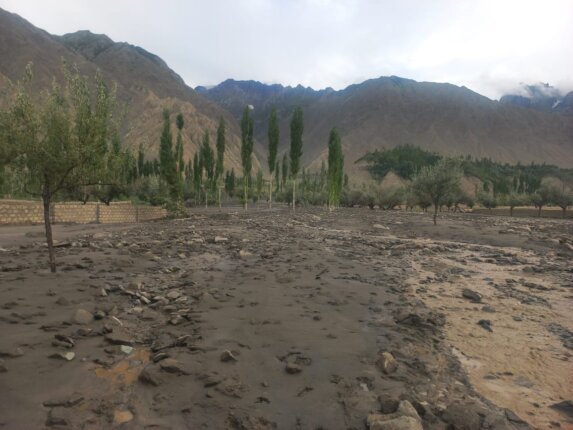GILGIT: As reported in media, once hailed as the “tourism hub” of Pakistan, Gilgit-Baltistan (GB) has witnessed a dramatic collapse in tourist arrivals this year, as unprecedented rains, floods, and climate-induced disasters combined with international crises to choke the flow of both foreign and domestic visitors.
In cities in GB, Skardu, which had been the busiest destination in recent years with four to six flights arriving daily during peak season, saw a sharp decline in tourist inflow following the tragic cloudburst incident near Babusar that claimed several lives. Torrential floods across Skardu and adjoining valleys further worsened the situation, halting all tourist activities at the height of the season. Hotels and rest houses that are usually overflowing with visitors in July and August wore a deserted look this year, leaving business owners and local communities in shock.
“This is the first time in decades that we have seen hotels remain completely empty during the peak season,” said a hotel owner in Skardu. “We are worried not only about this season’s losses but also about the next year, because climate change is making such disasters more frequent and unpredictable in the area.”
An official sources from the GB Tourism Department confirmed that both foreign and domestic arrivals plummeted by nearly 90 percent this year. According to official figures, only 270 international climbers arrived in Gilgit-Baltistan to attempt some of the world’s highest peaks, including K2, Nanga Parbat, Broad Peak and the Gasherbrums, compared to more than 2,000 foreign climbers and trekkers last year.
As per the details, even among those who did arrive, most expeditions were unsuccessful. Extreme weather, avalanches, rockfalls, and violent winds forced many climbers to abandon their missions and retreat from base camps without summiting. Only 40 climbers managed to summit K2, 25 reached Nanga Parbat, and about a dozen scaled Gasherbrum-I this season, in stark contrast to previous years.
According to the sources the collapse in numbers is not limited to foreign visitors. Domestic tourism, which surged in recent years with more than one million Pakistani visitors recorded in 2023, has also nosedived this year.
Another office bearer at GB Tourism Department, said, “Last year we saw over 24,000 foreign tourists and around one million domestic tourists. This year, the situation is alarming as arrivals both domestic and international have declined by 90 percent.”
As per the stakeholders in the local economy the downturn has been devastating. From hotel owners and transporters to shopkeepers, porters, and handicraft businesses, nearly every sector tied to tourism is facing mounting financial distress.
Tour operators in the area blame multiple factors beyond floods. They said that a legal battle over permit fee hikes, coupled with geopolitical crises such as the Iran-Israel conflict and tensions between Pakistan and India, forced many international climbers and trekkers to cancel plans. They added that the unpredictable weather patterns at high peaks have made planning expeditions nearly impossible.
Tourism, often described as the economic lifeline of Gilgit-Baltistan, contributes billions of rupees annually to the local economy. With this year’s collapse, thousands of families who depend on the industry are now facing uncertain futures. The fear that climate change-driven disasters could wipe out future tourism seasons has amplified anxiety across the region.




